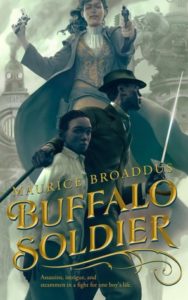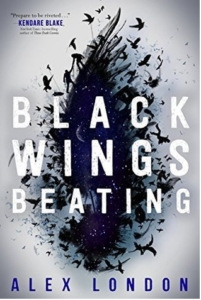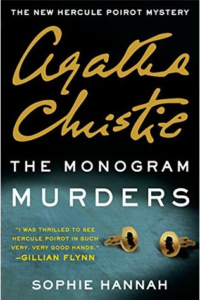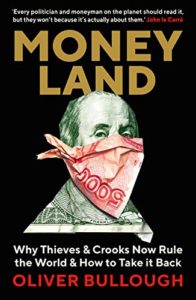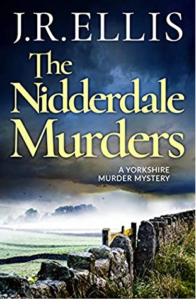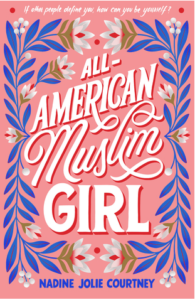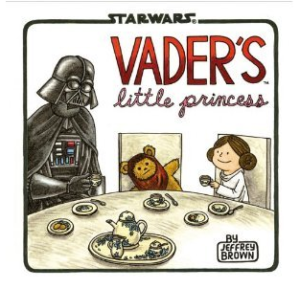What a stunningly awful book.
I picked it up thinking I’d enjoy the thought experiment: what if George Washington had accepted the title of King after wresting American independence away from Britain? According to Katharine McGee, this would have dampened the global thirst for revolution, accelerated the abolition of slavery, and paved the way for racial and sexual equality. Interesting, if not outright worthy ideas all, but then they come up against the perfectly ludicrous reality Ms McGee sets up for herself in telling an incredibly stupid story of young people acting rashly while infatuated. Honestly, I felt sometimes that she only researched enough to make this sound plausible, then ignored anything that didn’t fit the dramz of it all. Infuriating.
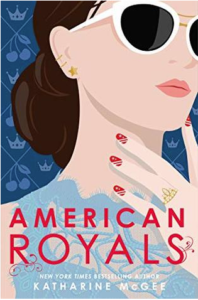 Crown Princess Beatrice is set to be American’s first female monarch, since her grandfather rewrote the laws of succession such that the firstborn will inherit the throne regardless of gender. Pausing the summary here to point out the glaring error in causation/correlation here: male primogeniture, which still gave us loads of European queens, is super not the same as reserving the throne for only men. Presenting America as uniquely misogynistic while being racially and sexually diverse is a weirdly self-serving straight white lady take. Anyway, Beatrice is the perfect princess, poised, pretty and responsible. Tho still in her very early 20s, she’s tasked with auditioning husbands from the short list her parents have made for her from America’s most eligible gentry bachelors. But she’s in love with her hot bodyguard, Connor, and oh my God did I roll my eyes at the very idea that the Crown Princess of anywhere would ever be left alone with one young dude for the ridiculous amount of time they were given.
Crown Princess Beatrice is set to be American’s first female monarch, since her grandfather rewrote the laws of succession such that the firstborn will inherit the throne regardless of gender. Pausing the summary here to point out the glaring error in causation/correlation here: male primogeniture, which still gave us loads of European queens, is super not the same as reserving the throne for only men. Presenting America as uniquely misogynistic while being racially and sexually diverse is a weirdly self-serving straight white lady take. Anyway, Beatrice is the perfect princess, poised, pretty and responsible. Tho still in her very early 20s, she’s tasked with auditioning husbands from the short list her parents have made for her from America’s most eligible gentry bachelors. But she’s in love with her hot bodyguard, Connor, and oh my God did I roll my eyes at the very idea that the Crown Princess of anywhere would ever be left alone with one young dude for the ridiculous amount of time they were given.
Her younger siblings, 18 year-old twins Samantha and Jefferson, are a handful. According to Samantha, her little brother Jefferson gets away with everything because he’s a dude while she’s just the spare, but Samantha is stupid and awful, so there’s no taking her at her word for anything. She meets Teddy — one of Bea’s eligible suitors — at her sister’s party, drags him into a closet to make out with her, then once Bea chooses Teddy for her betrothed, decides she’s in love with him. Bitch, please. Her best friend Nina has been passively in love with Jeff for years but hates all the media attention that comes with his lifestyle, so when they start dating, freaks out completely at something she’s been exposed to since she was a girl. Daphne, Jeff’s social climbing ex, is determined to get back together with him despite having secretly (the following is not a spoiler because, as with nearly every other plot point in this book, it was obvious af) fucked his “best friend” Ethan the Cardboard Cutout, who we’re told “sees her” and “knows her” despite having all the depth of a cereal box.
It’s so dumb, y’all. Everyone makes terrible choices against their own self-interests because they’re absolute idiots. Comparing this to Gossip Girl is an insult to Cecily van Ziegesaar’s excellent novels, tho maybe the TV show was this vapid, idk, I couldn’t watch more than 20 minutes before having to turn it off every. single. time (which is weird because I honestly enjoy the four very talented main actors.) And like, not only is this not how monarchy works, this is also a bizarrely wistful argument for monarchy versus our present system of representative democracy. I get it, democracy is hard work and it’s tough not to be bitter at our present system, but that a royalist like myself feels so vehemently against the systems on display in this book should tell you something about how out of touch it is with how monarchies work in the real world. It felt less like a modern consideration of political systems and more like a fantasy of paternalism, replete with not-like-other-girls and other-girls-hate-me-because-I’m-awesome characters, all of whom I wanted to punch in the face*. I understand the desire to have Daddy use his wisdom to fix the world for you but it’s childish to want magical solutions to practical problems, and certainly not the kind of thinking you want to promote in a novel ostensibly aimed at young adults.
Tl;dr this was dumb and I’m sorry I read it.
*Daphne wasn’t so bad, but it sucked that she was set up as the villain of the piece when it’s really the patriarchal system that forces her to social climb that’s to blame. Also, it was annoying af that her ambition was colored as evil whereas Teddy’s extremely similar motivations were somehow heroic. God, this book sucked.

